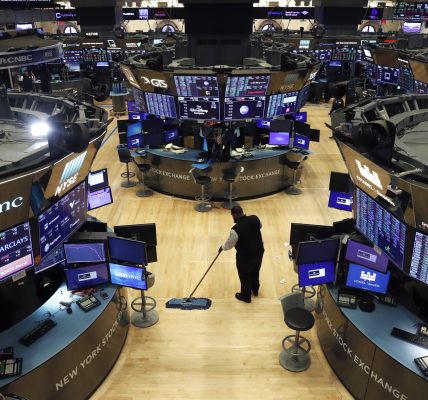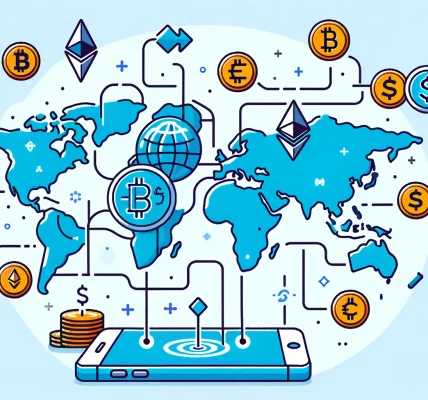The groundbreaking Artificial Intelligence (AI) can generate new content by learning from already available information, including texts, images, music, or code. Systems such as GPT-4 generate human-like writing, lifelike pictures, and original melodies, making them valuable in creativity, automation, and finding solutions. This technology will help to significantly improve economic efficiency, enhancing innovation and productivity across many sectors. In this article, we will examine the impact of generative AI in advancing the economy by revolutionising industries like finance, labour markets, and the healthcare sector.
What is Generative AI?
This is a system classified under a type that creates new content based on learning from existing data such as text, images, music, or even code. Examples are systems like GPT-4, capable of generating realistic writing, pictures, or even pieces of music; it helps much in creativity, automation, and solving complex problems. In this experiment, AI algorithms were used with medical images, and hospital deaths from sepsis were reduced by 20%.
Aspects that Generative AI helped to improve in the economy
AI algorithms changed the face of automated trading and investment processes. Among the many things, an AI algorithm can do is to execute trading decisions faster and more accurately than a human’s capability. Acceleration of this nature brings about increased efficiency in markets due to an increased pace of price adjustments reflective of a more comprehensive set of information. Such a market would then be one in which asset prices more conform to the available data and thus offer enhanced transparency and efficiency in trading.
Machine learning models have become very instrumental in driving fraud detection and prevention in the financial sector. These models can easily recognise the anomalies that may indicate fraudulent activities. Machine learning algorithms that analyse transaction data in real time enable the system to sense any prospective occurrence of fraudulent activities. Therefore, such aspects offer an avenue for speedier responses to take place and in turn reduce the impact of the detected problem. This proactive approach safeguards financial systems and consumers against fraudulent schemes.
AI allows the personalisation of financial products and services to meet the needs of the individual. Among the most important transformers in this area of change are AI-powered robo-advisors, which have the capability to provide customized investment advice to the user in line with his unique financial goals and risk tolerance. Personalization at this level gives power to financial planning, opening it to an entirely new market segment and letting people get advice directly relevant for unique situations.
The area of credit scoring and lending has arguably seen immense benefits from AI’s ability to digest through alternative sources of data. Traditional models of credit scoring were very reliant on limited data, often overlooking underserved populations with high default rates. AI added to this with the inclusion of more variables, giving way to more accurate credit assessments. This broader analysis helps extend credit to people who previously had limited access, fostering greater financial inclusion and reducing disparities in credit availability.
The emergence or application of artificial intelligence technologies brings along with it a rush of highly skilled employment opportunities in areas such as Data Science, Machine Learning, and AI research, creating innovation and technological progress that might lead to economic growth.
AI-powered automation replaces tasks with more significant parts of an employee’s job that require intricacy and imagination. This movement increased productivity, job satisfaction, and quality of services.
With certain functions performed by AI, there is a rising call for reskilling and upskilling programs. These moves facilitate the shifting of workers into new positions that guarantee an agile workforce capable of adapting to the market’s changing needs.
AI has reduced most of the entry barriers to entry into business, thus giving way to economic inclusion. Some industries that were no-go zones for some due to the high cost of doing business or probably complicated processes are now easily accessed using this technology.
A report by the World Health Organization (WHO) indicates that half of all medical errors in primary care are due to administrative errors. In the healthcare sector, generative AI helps analyse medical images and helps doctors diagnose diseases, which improves the accuracy of the field.
According to the World Economic Forum, the trustworthiness of generative AI may be directly proportional to the potential accuracy achievable by it; however, much is predicated upon data quality. The World Economic Forum predicts a shortage of as many as 10 million healthcare workers by 2030, so the rise in efficiency with generative AI will likely bring down those numbers by allowing less staff to cater to large numbers of patients.
Case Studies
1. Healthcare: Improving Diagnostic Accuracy
A critical research study evaluated healthcare outcomes at five centers within the Johns Hopkins Medicine System. This research highlighted the significant impact of sepsis, a condition that contributes greatly to hospital mortality rates. The capabilities of AI, in such scenarios, were underlined as life-saving because of its accurate diagnostic potential. Such an example reduces diagnostic errors and improves patient outcomes, thus demonstrating the potential for AI to improve healthcare quality and save lives.
2. Finance: Improving Customer Experience and Boosting Operational Efficiency
ING collaborated with QuantumBlack, an AI unit of McKinsey, to develop and implement an innovative chatbot designed to transform customer service in the financial industry. Having such a sophisticated AI chatbot in place has revolutionized the way of engaging clients through the delivery of personalized feedback quickly and efficiently. Customer satisfaction has increased significantly with such a technological implementation taking place, making the service process much more efficient. With the application of AI, ING enhanced the overall customer experience and brought operational efficiency to the company, underlining the huge benefits that artificial intelligence could create for the banking industry.
Is AI improving economic efficiency?
Economic efficiency refers to how resources can be used optimally to provide maximum production without wastage and achieve maximum societal benefit. AI is increasingly contributing to economic efficiency in ways that can potentially make a difference.
AI systems can significantly analyse big data to find out where exactly resources are put to use efficiently. In this manner, artificial intelligence also enables more informed investment decisions through the recognition of top-performing sectors and activities. This focused effort will ensure the transfer of capital to the highest potential areas, improving overall economic output and general societal well-being.
Routine functions conducted today using AI significantly lower operational expenses for any business enterprise. Decreasing the need for manual intervention helps cut prices for products and services while maintaining their profit margins for companies. So, not only does the consumer gain an advantage through lower prices, but society can achieve increased economic competitiveness by enabling businesses to function more efficiently.
AI technologies provide businesses and policymakers with a more explicit understanding of market trends, consumer behaviour, and economic conditions. The effects of these insights are much related to rational decisions that are central to maintaining financial stability, which is important for ensuring growth. These strategic choices can be made at organisational levels to enhance economic stability and drive progress by leveraging AI’s analytical capabilities.
AI improves the speed of innovation, hence making it easier to prototype and test ideas quickly. If it can move this phase of the product development cycle quickly, one can catch the markets sooner. Therefore, future AI innovation will not only drive economic growth but also create new markets for products, thereby fostering dynamism and expansion in the economy.
Conclusion
Generative AI has the potential to transform industries to achieve massive improvements in economic efficiency, innovations, and productivity gains. Its impact is visible in sectors like finance and healthcare, where AI helps enhance operational effectiveness and patient care. Also, AI influences the labour market through measures such that it is creating new jobs and the need for reskilling, hence increasing productivity and adaptability. These improvements, among others, help contribute to a more inclusive and efficient economy. Following this advancement path evolution, AI technologies are expected to drive further industry transformations in the future and raise human welfare, focusing on strategic adaptation would make it possible for an effective exploitation of AI’s power.
References
Dr Shaoshan Liu. (2024, February 29). There are four ways AI could transform the economy as we know it. World Economic Forum. https://www.weforum.org/agenda/2024/02/ai-banking-economy/#:~:text=In%20today
Gartner. (2023). Generative AI: What Is It, Tools, Models, Applications and Use Cases. Gartner. https://www.gartner.com/en/topics/generative-ai
Johns Hopkins Medicine. (2023, July 17). Report Highlights Public Health Impact of Serious Harms From Diagnostic Error in U.S. Www.hopkinsmedicine.org. https://www.hopkinsmedicine.org/news/newsroom/news-releases/2023/07/report-highlights-public-health-impact-of-serious-harms-from-diagnostic-error-in-us
Mckinsey & Company. (n.d.). Banking on innovation: How ING uses generative AI to put people first | Financial Services | McKinsey & Company. Www.mckinsey.com. https://www.mckinsey.com/industries/financial-services/how-we-help-clients/banking-on-innovation-how-ing-uses-generative-ai-to-put-people-first
Probasco, J. (2023, December 8). Generative AI and Its Economic Impact: What You Need to Know. Investopedia. https://www.investopedia.com/economic-impact-of-generative-ai-7976252






